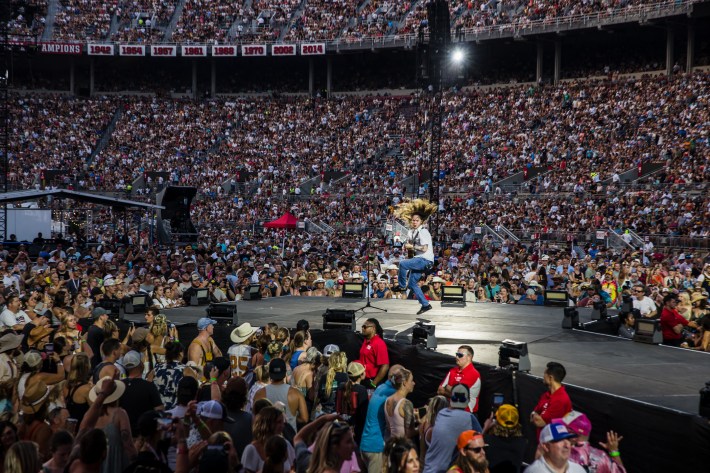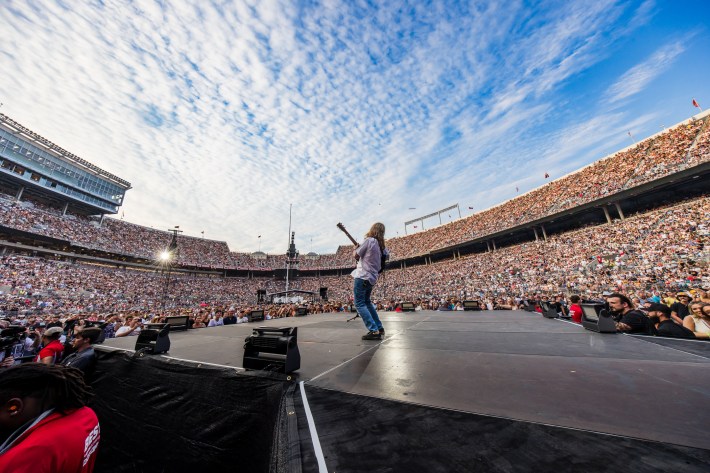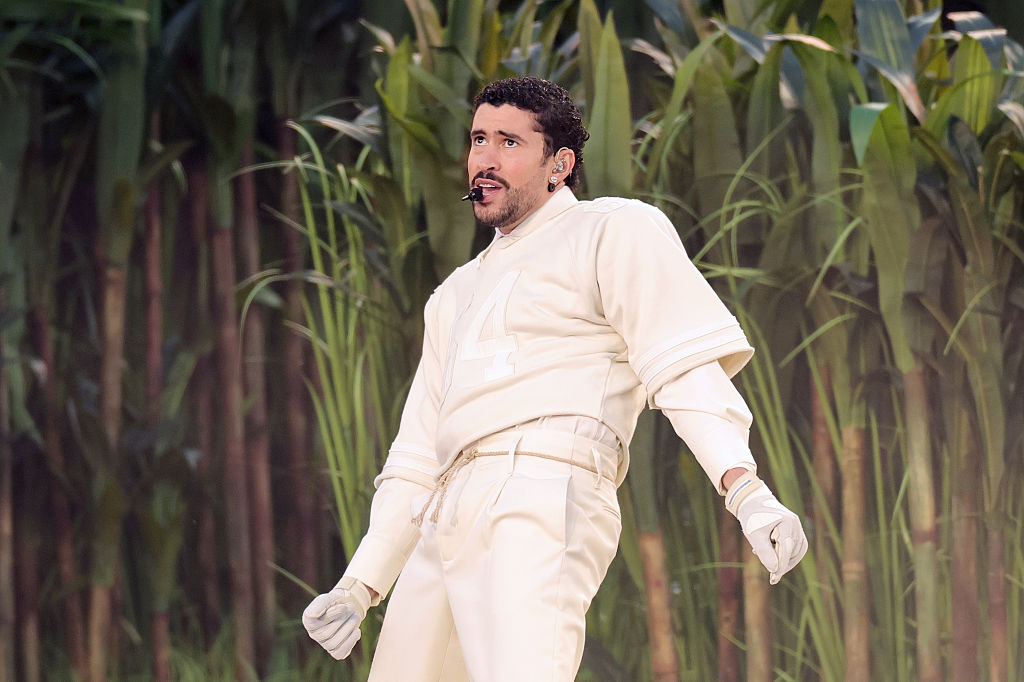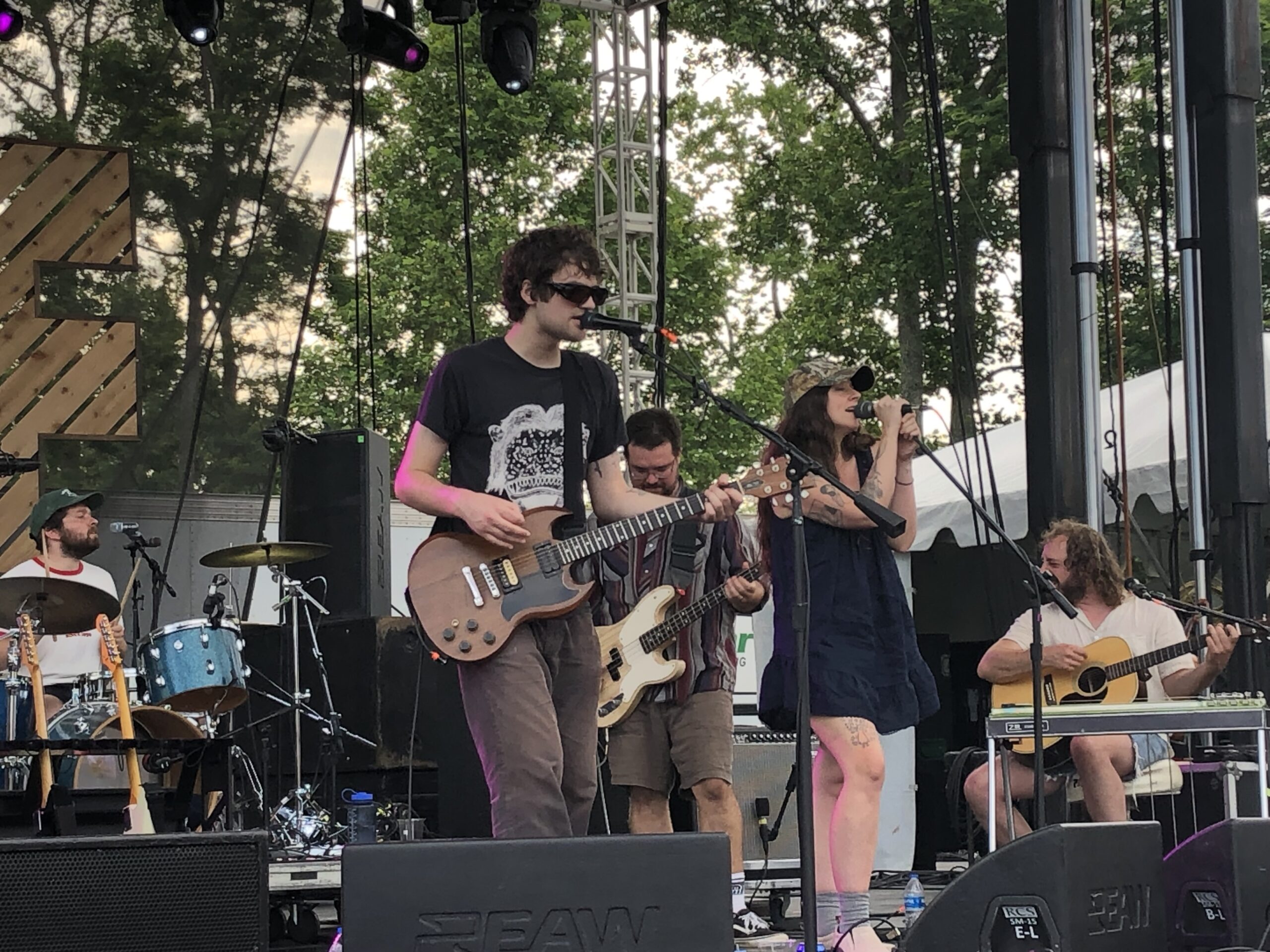It took less than one song to turn me into a full-fledged convert. Granted, it was probably 10 minutes long, and it shifted genre several times, so it felt like more than one song to an extent. But the length and breadth of it all was part of the appeal.
Around 8 o'clock Saturday night in Columbus, Billy Strings stepped out in front of a stadium full of people and began summoning sound from his acoustic guitar. He was unaccompanied at first, playing a part that reminded me of jazzy neo-classical fingerstyle virtuosos like Paco de Lucía or Al Di Meola, exploratory and flush with feeling. Gradually, his four bandmates joined in, and the music morphed into a traditional bluegrass ramble. There were five of them total: Billy on guitar plus fiddle, banjo, mandolin, and upright bass. Even in the cavernous coliseum where the Ohio State Buckeyes play football, there was no drummer to make the sound go boom, not even a kickdrum like Mumford & Sons used to use.
The band didn't need that kind of percussion to make its presence felt at the Horseshoe. As "Away From The Mire" unfolded, Billy stepped to the microphone with a robust voice that belied his slender frame, sweet but hearty, like a welterweight Travis Tritt or Chris Stapleton. "Let go of the pain," he sang. "Hold on to the rhythm that's consciously held back in you." The music kept unspooling, returning to the jazzy classical vibes of the intro, then veered off into a lengthy instrumental passage that reminded me Billy once joined prog-metal icons Tool onstage. (Fittingly, one guy a few rows in front of me was rocking a Tool T-shirt, an exception in a crowd full of sleeveless shirts, cowboy hats, mullets, and other country looks.)

Put simply, these dudes ripped. The whole ensemble played with a furious finesse that makes sense in their home genre of bluegrass but works just as well when they're bending the boundaries of that sound. Billy wasn't just doing the standard bluegrass flatpicking; at one point he ran his guitar through a distortion pedal and started playing bluesy string bends and metallic hammer-ons like the '60s and '70s hard rockers whose music has become its own kind of folk tradition. The band blazed their way through the backroads of the imagination, like Grateful Dead by way of the bluegrass mecca of Kentucky and Billy's Michigan homeland, before circling back to the main song for a rousing conclusion. It was a breathtaking display — and yet nothing compared to the song later in the set that spanned half an hour.
Billy, born William Lee Apostol, has become the biggest name in bluegrass, or at least the one whose reach extends farthest beyond the genre's core fanbase. He's taken the stage not just with Tool but with the newly countrified Post Malone and bands from across the jam-band universe. In 2022, he performed at the Grammys for a national TV audience. He's also, crucially, won over the kinds of mainstream country listeners who flock to Buckeye Country Superfest, an annual festival at this stadium that tends to bring in some of the genre's biggest names.

In 2021, BCS featured Kenny Chesney, Florida Georgia Line, Kane Brown, Brett Young, and Gabby Barrett — a lineup that represented some of the poppiest sounds off the Nashville assembly line. Since then the fest has been topped by Luke Combs and the combination of George Strait and Chris Stapleton, figures who don't fit into the bro-country equation. This year Billy was the second name down the bill, bringing bluegrass to the Horseshoe in between reunited honky-tonk traditionalists the Turnpike Troubadours and alt-country people's champ Zach Bryan. It was a rugged, salt-of-the-earth display at an event I tend to associate with radio-friendly showbiz sparkle.
Headlining the night, Bryan put on the kind of rousing Bruce-meets-Bright Eyes performance he's known for, full of shout-along choruses — and verses, for that matter — alternating between sparse acoustic balladry and massive swells from his backing band of old pals from Oklahoma. I was impressed, and when I was driving across Middle America the next night, I couldn't resist soundtracking the gorgeous Kansas sunset with "Pink Skies" and "Something In The Orange." Much has been said about how Bryan's success reveals a hunger for a more rugged, tasteful side of country music that hasn't been represented at radio for years. But on Saturday, I was even more amazed at the heights Billy Strings has been able to reach working in an even less commercially viable genre.

The backstory, if you're unfamiliar: Billy grew up in Michigan, minus a brief detour into Kentucky. His stepfather Terry Barber, who he considers his dad, is an amateur bluegrass musician who introduced him to the music from a young age; they teamed up for the album Me/And/Dad in 2022. During his childhood, Billy's parents developed hard drug addictions, a pastime in which he also partook for years before getting "California sober" (i.e. sticking with weed and psychedelics). He got his big break in 2012, at age 20, when mandolin player Don Julin welcomed him into a partnership that entered Billy into national orbit. By the end of the decade he had become a hard-touring force within American roots music, a low-key rockstar putting a modern twist on traditional sounds.
Onstage in Columbus, his appeal was fully on display. "We're proud to bring a little bluegrass to this party," Billy announced early on. He and his band indeed shone a spotlight on that old-school lineage, locking into twangy backing vocals and giving each player spotlight moments throughout lengthy instrumental passages. But the performance stood out just as much for the way it transcended those roots. Billy busted out a goofy leg-shaking dance on the catwalk during outbursts of hoedown fiddle, but at times he also whipped his scraggly mane of hair around like a heavy metal headbanger or, on the love song "In The Morning Light," adopted the posture of a folk singer-songwriter. Twenty minutes into the behemoth "Meet Me At The Creek" that took up almost half the band's allotted time, they worked a bit of the Inspector Gadget theme into the arrangement, a move that exemplified Billy's "Why not?" ethos.
I don't know if an event like Buckeye Country Superfest would book an artist as seemingly niche as Billy Strings to headline, but I might have said the same thing two years ago when Bryan was on the undercard, and no one has made bluegrass seem less niche than Billy Strings. Maybe the emergence of figures like these on a mainstream level is a blip, but maybe they represent some kind of sea change. When Billy joined Bryan onstage for his encore, it felt like a significant moment: two stalwarts of the new Americana, triumphantly leading their own kind of revival.







